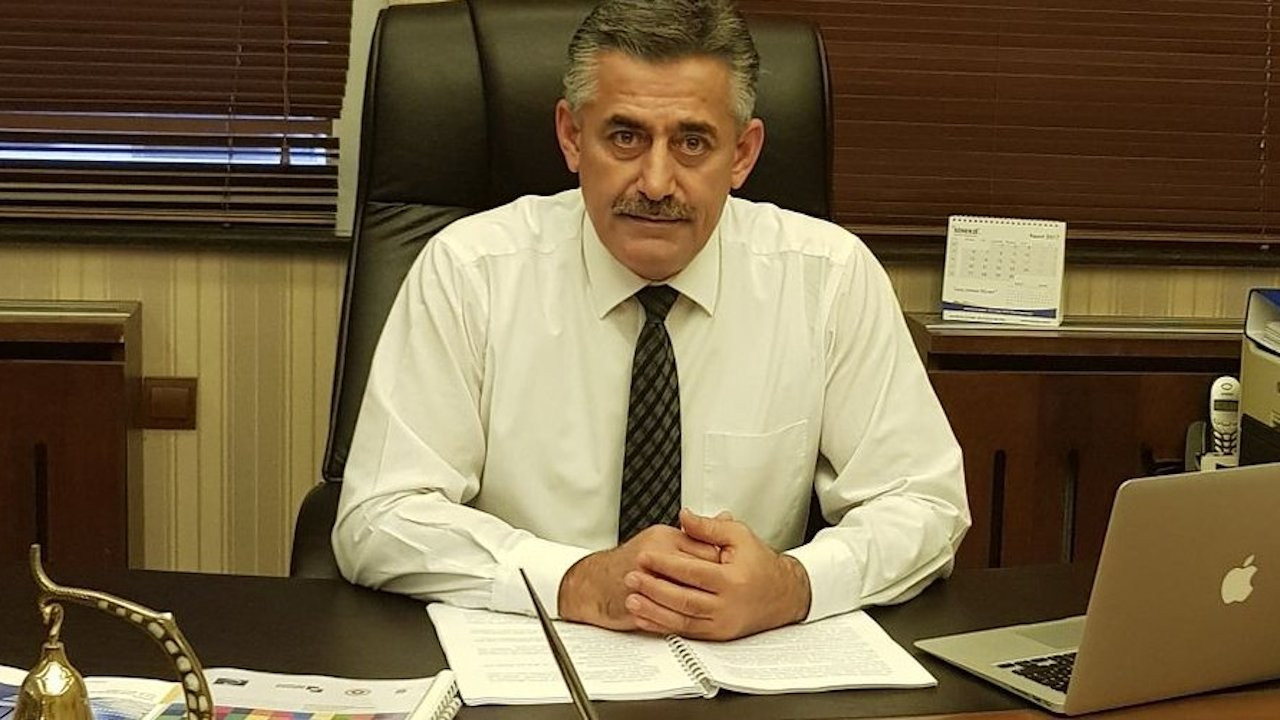Turkey to respond in time to 'outrageous' Biden genocide statement
Turkish Presidential spokesperson İbrahim Kalın has said that Turkey will respond to Biden's Armenian genocide recognition in the coming days and months. "At a time and place that we consider to be appropriate, we will continue to respond to this very unfortunate, unfair statement," he said.
Duvar English - Reuters
U.S. President Joe Biden's declaration that massacres of Armenians in the Ottoman Empire constituted genocide is "simply outrageous" and Turkey will respond over coming months, Turkey's presidential spokesman said on April 25.
Biden broke on April 24 with decades of carefully calibrated White House comments over the 1915 killings, delighting Armenia and its diaspora but further straining ties between Washington and Ankara, both members of the NATO military alliance.
"There will be a reaction of different forms and kinds and degrees in coming days and months," İbrahim Kalın, President Recep Tayyip Erdoğan's spokesman and adviser, told Reuters in an interview.
Kalın did not specify whether Ankara would restrict U.S. access to the İncirlik airbase in the southern province of Adana, which has been used to support the international coalition fighting ISIS in Syria and Iraq, among measures it may take.
After other Turkish officials swiftly condemned Biden's statement on April 24, Erdoğan would address the issue after a cabinet meeting on April 26, Kalın said. "At a time and place that we consider to be appropriate, we will continue to respond to this very unfortunate, unfair statement," he said.
Turkey accepts that many Armenians living in the Ottoman Empire were killed in clashes with Ottoman forces in World War One, but denies the killings were systematically orchestrated and constitute genocide.
'Under the spell of this unfortunate statement'
For decades, measures recognizing the Armenian genocide stalled in the U.S. Congress and most U.S. presidents have refrained from calling it that, held back by concerns about straining relations with Turkey.
But those relations are already troubled. Washington imposed sanctions on Turkey over its purchase of Russian S-400 missile defense systems, while Ankara has been angered that the United States has armed Syrian Kurdish People's Protection Units (YPG) militants and not extradited U.S.-based Islamic preacher Fethullah Gülen, whose network is the widely believed mastermind of the July 15, 2016 failed coup attempt.
Navigating those disputes will now be even harder, Kalın said. "Everything that we conduct with the United States will be under the spell of this very unfortunate statement," he said.
Kalın said Turkey's parliament is expected to make a statement this week. Analysts say lawmakers may hit back rhetorically against Biden by classifying the treatment of Native Americans by European settlers as genocide.
As well as limiting access to İncirlik, Turkey also has options to reduce military coordination with the United States in northern Syria and Iraq or scale down diplomatic efforts to support Afghan peace talks, said Özgür Ünlühisarcıklı, director of the German Marshall Fund research group in Ankara.
In reality, though, Erdoğan's options are limited as he is already battling one of the highest rates of daily COVID-19 cases globally and has seen the lira currency fall close to all-time lows against the dollar last week.
"This is a difficult period for Turkey and it's not a time when Turkey wants to pick a fight with anyone, let alone the United States," Ünlühisarcıklı said.
Kalın said U.S. officials had told Turkey the declaration would not provide any legal basis for potential reparation claims.
Nevertheless, Erdoğan told the U.S. president when they spoke by phone on April 23, their first conversation since Biden took office three months ago, that it would be a "colossal mistake" to go ahead with his statement.
"To reduce all that to one word and try to implicate that Turks were involved, our Ottoman ancestors were involved in genocidal acts, is simply outrageous," Kalın said.
"It's not supported by historical fact."

 US warns its citizens in Turkey against protests over Biden's Armenian genocide recognitionDiplomacy
US warns its citizens in Turkey against protests over Biden's Armenian genocide recognitionDiplomacy DEVA founder targets HDP for remembering Armenian genocide: I hope you become extinct tooPolitics
DEVA founder targets HDP for remembering Armenian genocide: I hope you become extinct tooPolitics Ukrainian minister says Kyiv should recognize Armenian genocideDiplomacy
Ukrainian minister says Kyiv should recognize Armenian genocideDiplomacy Infuriated by Biden's Armenian genocide recognition, Ankara summons US envoyDiplomacy
Infuriated by Biden's Armenian genocide recognition, Ankara summons US envoyDiplomacy